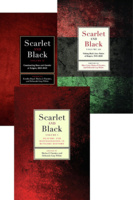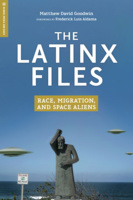Precarity and Belonging
Labor, Migration, and Noncitizenship
Approaching mobility, precarity, and citizenship at once generates a critical exploration of the points of contact and friction and the potential politics of commonality between citizens and noncitizens. What does modern citizenship mean in a world of citizens, denizens, and noncitizens living under common conditions of labor and social precarity? Precarity and Belonging interrogates such binaries as citizen/noncitizen, and “legal”/“illegal” to explore the fluidity of the spectra of belonging.
Precarity and Belonging
Labor, Migration, and Noncitizenship
Approaching mobility, precarity, and citizenship at once generates a critical exploration of the points of contact and friction and the potential politics of commonality between citizens and noncitizens. What does modern citizenship mean in a world of citizens, denizens, and noncitizens living under common conditions of labor and social precarity? Precarity and Belonging interrogates such binaries as citizen/noncitizen, and “legal”/“illegal” to explore the fluidity of the spectra of belonging.
Martin Scorsese and the American Dream
Mapping the Way from Teacher Preparation to edTPA® Completion
A Guide for Secondary Education Candidates
Japan and American Children's Books
A Journey
Drawing from the Library of Congress’s massive collection, this volume takes readers on a fascinating and informative journey through nearly 200 years of American children’s books and periodicals depicting life in Japan, from fanciful travelogues full of exotic stereotypes to serious works about wartime atrocities. Published by Rutgers University Press in association with the Library of Congress.
Haunted Homes
Haiti Fights Back
The Life and Legacy of Charlemagne Péralte
Dying to Count
Post-Abortion Care and Global Reproductive Health Politics in Senegal
Dreams of Archives Unfolded
Absence and Caribbean Life Writing
Bollywood’s New Woman
Liberalization, Liberation, and Contested Bodies
Scarlet and Black, Volume Three
Making Black Lives Matter at Rutgers, 1945-2020
The 250th anniversary of the founding of Rutgers University is a perfect moment for the Rutgers community to reconcile its past, and acknowledge its role in the enslavement and debasement of African Americans and the disfranchisement and elimination of Native American people and culture.
Scarlet and Black (3 volume set)
Scarlet and Black documents the history of Rutgers’s connection to slavery, which was neither casual nor accidental—nor unusual. Like most early American colleges, Rutgers depended on slaves to build its campuses and serve its students and faculty; it depended on the sale of black people to fund its very existence.
A COVID Charter, A Better World
Folk Stories from the Hills of Puerto Rico / Cuentos folklóricos de las montañas de Puerto Rico
This exciting new bilingual anthology gathers Puerto Rican folktales that were passed down orally for generations before being transcribed beginning in 1914 by the team of famous anthropologist Franz Boas. It includes stories about historical figures like pirate Roberto Cofresí, unique twists on “Snow White” and “Cinderella,” and beloved local characters like the kind cockroach Cucarachita Martina.
Esta nueva y emocionante antología bilingüe reúne cuentos populares puertorriqueños que se transmitieron oralmente durante generaciones antes de ser transcritos comenzando en 1914 por el equipo del famoso antropólogo Franz Boas. La colección incluye historias sobre personajes históricos como el pirata Roberto Cofresí, versiones criollas de “Blanca Nieves” y “Cenicienta” y otros queridos personajes locales como la amable cucaracha Cucarachita Martina.
The Street
A Photographic Field Guide to American Inequality
The Latinx Files
Race, Migration, and Space Aliens
Playing with History
American Identities and Children’s Consumer Culture
Pink and Blue
Gender, Culture, and the Health of Children
Marriage, Gender and Refugee Migration
Spousal Relationships among Somali Muslims in the United Kingdom
This ethical and poetical ethnography analyzes the upheavals to gender roles and marital relationships brought about by refugee migration to the UK. Unmoored from the socio-cultural norms that made them men and women, Somali migrants find "everything" to be "different, mixed up, upside down." The book finds that the most significant catalysts for challenging harmful gender practices are a combination of the welfare system and Islamic praxis.




















